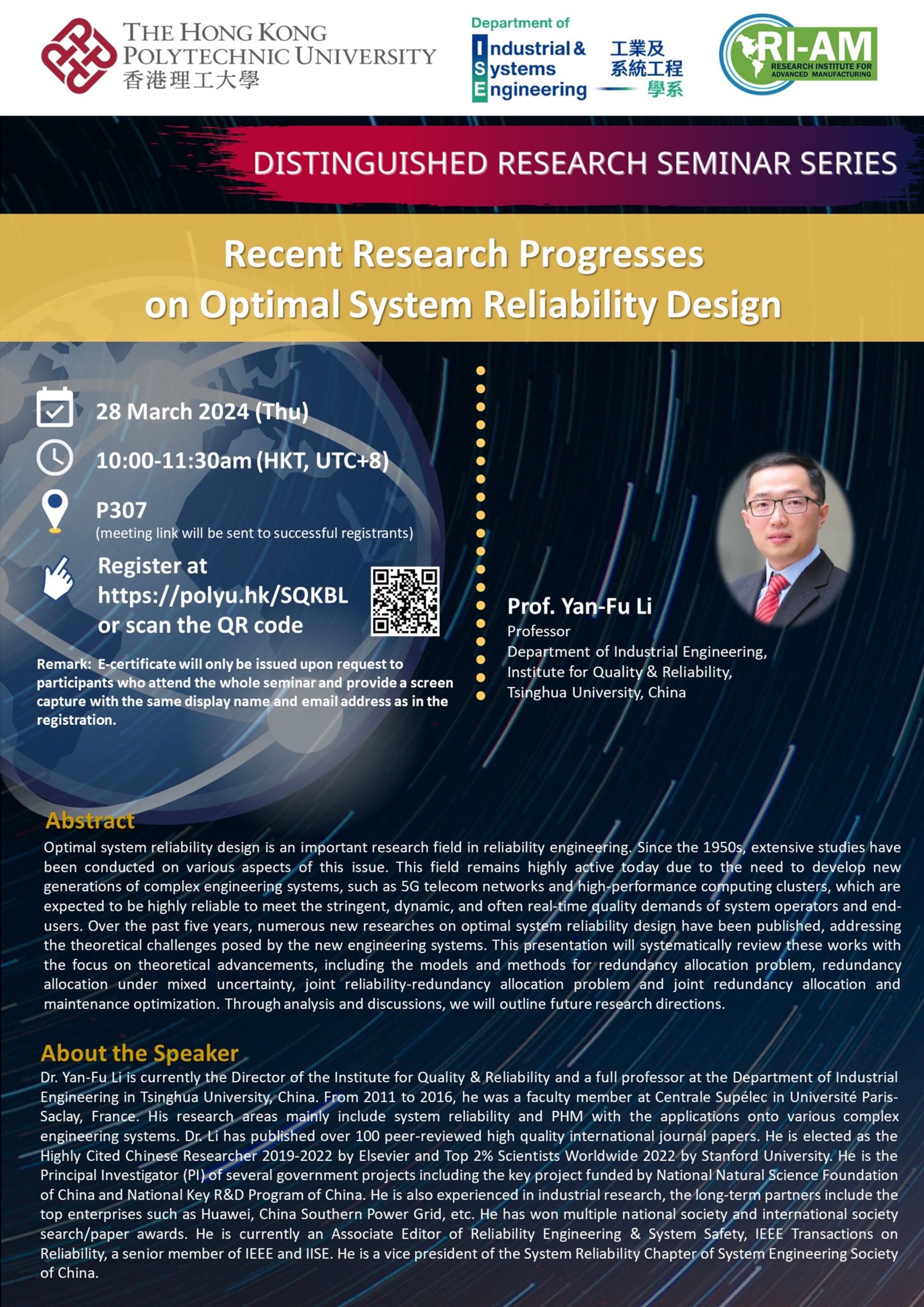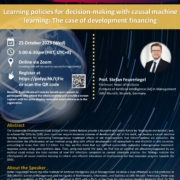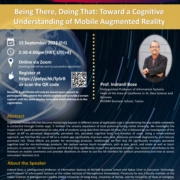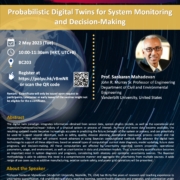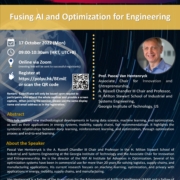Prof. Yan-Fu Li gave a talk on “Recent Research Progresses on Optimal System Reliability Design”
Optimal system reliability design is an important research field in reliability engineering. Since the 1950s, extensive studies have been conducted on various aspects of this issue. This field remains highly active today due to the need to develop new generations of complex engineering systems, such as 5G telecom networks and high-performance computing clusters, which are expected to be highly reliable to meet the stringent, dynamic, and often real-time quality demands of system operators and end-users. Over the past five years, numerous new researches on optimal system reliability design have been published, addressing the theoretical challenges posed by the new engineering systems. This presentation will systematically review these works with the focus on theoretical advancements, including the models and methods for redundancy allocation problem, redundancy allocation under mixed uncertainty, joint reliability-redundancy allocation problem and joint redundancy allocation and maintenance optimization. Through analysis and discussions, we will outline future research directions.

